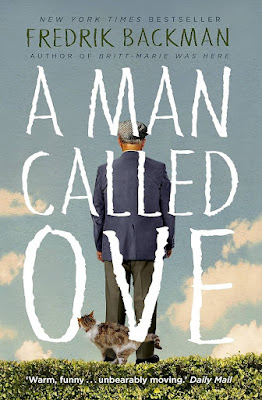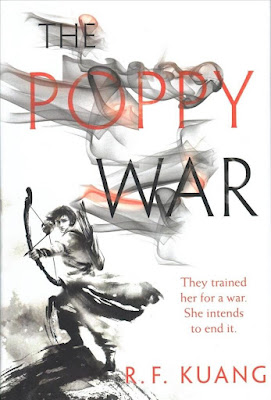The Help
Author: Kathryn Stockett
Acquired in: 2018
 As the first post for The Seaside
Library, I wanted to write about this book, even though I’ve actually read it
two years ago. That period of time is very important to me: it was my first
experience of public exams during which the prevalent emotion can be related to
getting stuck on a railway track and then hearing the train’s whistle. Whew.
As the first post for The Seaside
Library, I wanted to write about this book, even though I’ve actually read it
two years ago. That period of time is very important to me: it was my first
experience of public exams during which the prevalent emotion can be related to
getting stuck on a railway track and then hearing the train’s whistle. Whew.
Add to your Goodreads list
Acquired in: 2018
 As the first post for The Seaside
Library, I wanted to write about this book, even though I’ve actually read it
two years ago. That period of time is very important to me: it was my first
experience of public exams during which the prevalent emotion can be related to
getting stuck on a railway track and then hearing the train’s whistle. Whew.
As the first post for The Seaside
Library, I wanted to write about this book, even though I’ve actually read it
two years ago. That period of time is very important to me: it was my first
experience of public exams during which the prevalent emotion can be related to
getting stuck on a railway track and then hearing the train’s whistle. Whew.
What got me through the inferno was
chocolate and books, such as this one. The book had an aura of reassurance;
even the title was appealing when I saw it in the store. The Help is a book I
will read again and feel the same riot of emotions I felt on my first journey
through the book.
Eugenia or ‘Skeeter’ Phelan (skeeter-
slang for insect or mosquito; it is a reference to her leggy appearance), an
odd-ball among the denizens of Jackson, Mississippi, has always found comfort
in the arms of her old nurse Constantine. All of a sudden, the loving
relationship they shared was shattered when Constantine simply disappears out
of Skeeter’s life, leaving without a goodbye. Aibileen and Minny are the ones
she turns to help, owing to their long experience of caring for white
households all their life. The caring part is where Minny and Aibileen
drastically differ, often hilariously.
Constantine does not feature much in the
novel, but Skeeter’s search for her friend leads her to realise the duplicity
of the whites, who justify their cruel behaviour to the blacks as actually
upholding society’s welfare. The story follows with Skeeter’s subsequent
efforts to write a book with accounts of the housekeepers’ life; the cruelty
meted out by some employers, the kindness and love showed by some others.
This book might interest those who would
like to start reading about Civil Rights literature or even the injustice of
discrimination in general. After reading To Kill a Mockingbird, Uncle Tom’s
Cabin and Go Set a Watchman, The Help felt slightly less sombre than the others.
It did lack the intense gravity of Atticus’ conviction or of Uncle Tom’s inspiring
steadfastness, but is quite good for its effort to portray extremely polar
spheres of life in print. As a person who is not so familiar with the exact
history, I cannot highlight any inaccuracies in the historical aspect.
It is true that the book does not deal
with racism in all its ugliness, but I felt that the theme is relevant even
today, when many, many people harbour hidden animosity, especially for people
of colour, which sometimes rears its terrible head to remind us that racism has
never truly gone away.
Add to your Goodreads list



I watched the film first and then read the book but this was one of those rare cases where the film was equally enjoyable.
ReplyDelete